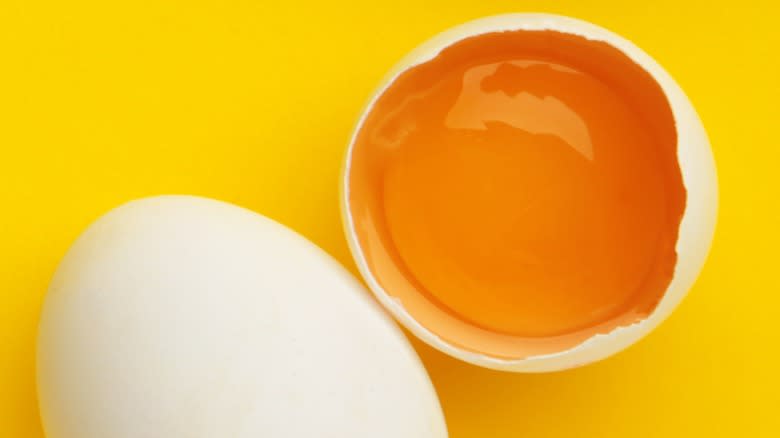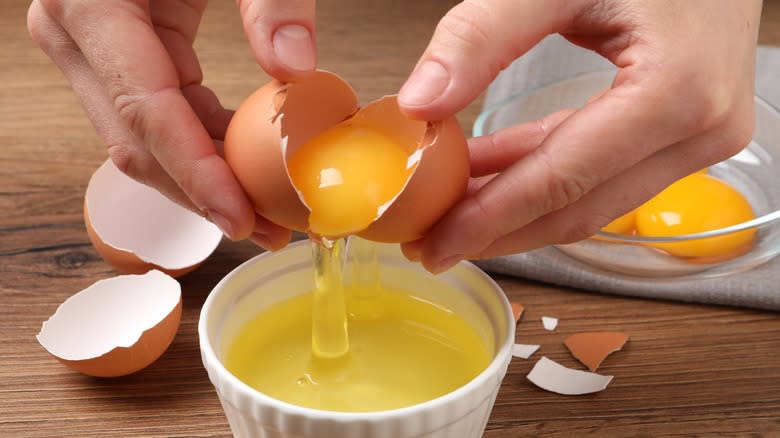What Makes Orange Egg Yolks So Special?

Food marketing gets better and more inventive every year, which means that we as consumers have to get better and more creative at seeing through the smoke and mirrors to identify what's a good product and what isn't. One such trick that consumers have come up with for identifying quality eggs is examining the color of the yolk. The word on the street is that the darker orange the egg yolk, the better the chicken's diet, and therefore the better the nutritional value of your breakfast omelet.
There are two problems with this system. The first is that you won't be able to see what the color of the egg yolk is until after you've bought it and cracked it open, meaning it's only helpful if you remember which brands have orange yolks so you can exclusively buy those brands. The other problem is that egg brands know that customers think this is true so they've begun to add supplements to their chicken feed to turn the yolks orange in much the same way that salmon farmers add astaxanthin to their salmon feed to turn the meat pink.
For eggs, the chemical compounds that naturally turn egg yolks orange are called carotenoids, which are found in plants. If you took the food additives out of the equation, the color of the egg yolk would still be meaningful, but probably not as much as you might expect. While carotenoids are a healthy antioxidant, when found in eggs, they are primarily an indicator of the hen's diet.
Read more: Hacks That Will Make Boiling Your Eggs So Much Easier
A Folk Yolk Cipher

With the cost of eggs surging to record highs, we want to know that we're getting a good product in return for our hard-earned money. And knowing what a chicken was eating when it laid the egg can help you decipher if the marketing on your free-range eggs is true. If the chicken has access to a wide pasture full of green grass and tasty worms, it's going to get the carotenoids it would need to produce an orange yolk. If you buy a cheaper carton of eggs whose yolks are bright yellow, that indicates that the chickens were probably fed a wheat-based diet, which would suggest that they were likely held in cages.
So, egg yolk color can help you verify that free-range eggs are, in fact, free-range, especially in the summer months when the hens have plenty of access to wild vegetation. It's worth noting that with the introduction of food additives to chicken feed, this useful tip becomes somewhat less useful. Farmers may add small amounts of turmeric or marigold to imitate a natural diet.
This could be in addition to allowing their chickens to roam free or they could be using cages to cut costs while still cashing in on the premium price associated with organic marketing terms. While there are tips you can follow to choose the highest quality eggs, the difference in yolk color mostly comes down to ethical eating, since some scientific research -- such as lab tests of Canadian egg brands conducted by CBC's Marketplace -- indicates that organic eggs aren't that much more nutritious than conventional eggs.
Read the original article on Tasting Table.

